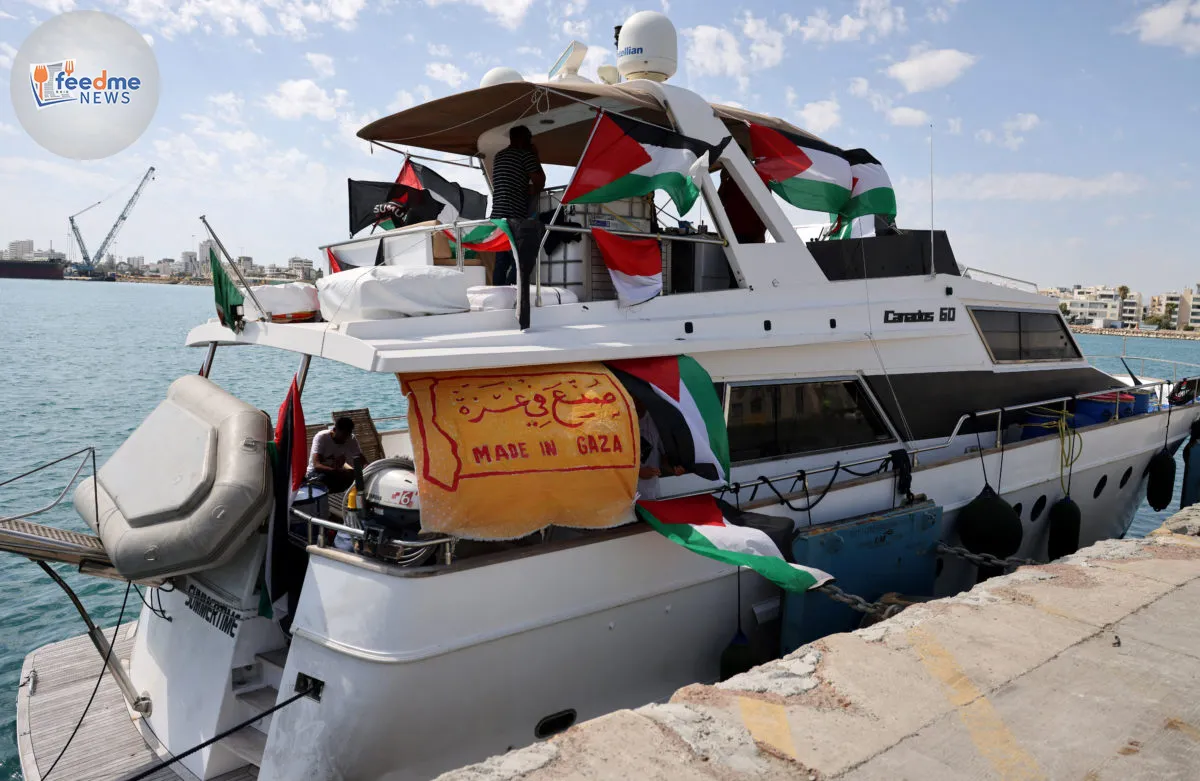In a move that has sparked international outcry, the Israeli military intercepted another flotilla attempting to deliver aid to Gaza. This latest incident comes shortly after activists aboard previous vessels faced detention, leading to global protests and heightened scrutiny over Israel’s actions. The flotilla, organised by the Freedom Flotilla Coalition, aimed to bring much-needed supplies to the embattled territory, but was stopped by Israeli forces who have defended their actions as necessary security measures.
Flotilla Interception Sparks International Response
On 8th October 2025, the Israeli military intercepted a Gaza-bound flotilla, escalating tensions in the region. The flotilla, consisting of several boats, was part of an ongoing effort by the Freedom Flotilla Coalition to deliver humanitarian aid to Gaza. The Israeli foreign ministry confirmed the interception, stating that the individuals on board would be deported. This operation follows a similar incident days prior, which led to widespread international protests and criticism of Israel’s treatment of activists.
The Freedom Flotilla Coalition reported on social media that the Israeli military jammed communications signals before boarding at least two of the boats. The coalition, which has been organising such flotillas for years, aims to challenge the blockade imposed on Gaza by Israel. The blockade, which Israel argues is necessary for security reasons, has been a point of contention and has drawn criticism from human rights organisations worldwide.

Historical Context and Timing of the Interception
The interception of the flotilla is the latest in a series of confrontations over aid deliveries to Gaza, a region that has been under a blockade since 2007. The blockade, enforced by Israel and Egypt, has severely restricted the movement of goods and people, leading to a dire humanitarian situation. The flotillas, often carrying activists and humanitarian supplies, have become a symbol of resistance against the blockade.
This particular interception occurred as tensions in the region remain high, with ongoing conflicts and humanitarian challenges exacerbating the situation. The timing of the interception, close to the anniversary of previous flotilla incidents, has added to the global focus on Israel’s policies and their impact on Gaza’s population.
Global Reactions and Criticism
The international community has responded with strong criticism of Israel’s actions, with various governments and human rights organisations calling for an end to the blockade and a reassessment of Israel’s approach to humanitarian aid. The United Nations has repeatedly urged for the lifting of the blockade, citing the humanitarian consequences faced by Gaza’s population.
The recent interception has drawn parallels to previous incidents, such as the 2010 raid on the Mavi Marmara, which resulted in the deaths of several activists and heightened international tensions. Critics argue that these actions undermine efforts to achieve peace and stability in the region and call for dialogue and negotiation as opposed to forceful interventions.
Expert Opinions and Analysis
Experts in international relations and Middle Eastern politics have weighed in on the situation, emphasising the need for a diplomatic resolution to the ongoing conflict. Dr. Sarah Ahmed, a Middle East analyst, noted, “The continuous interception of aid flotillas not only exacerbates the humanitarian crisis in Gaza but also damages Israel’s international standing. A long-term solution requires addressing the root causes of the conflict and ensuring the rights and dignity of all parties involved.”
Humanitarian organisations have echoed these sentiments, highlighting the urgent need for a sustainable solution that addresses both security concerns and humanitarian needs. The blockade, they argue, has failed to achieve its intended security objectives and instead has contributed to the suffering of Gaza’s civilian population.
Impact on Gaza and Future Implications
The interception of aid flotillas has significant implications for the people of Gaza, who rely heavily on external aid due to the blockade’s restrictions. The humanitarian situation in Gaza remains dire, with limited access to essential goods and services. The ongoing blockade and military interventions have compounded the challenges faced by the territory’s residents, leading to calls for immediate international action.
Looking forward, the continued interception of aid flotillas is likely to fuel further protests and international criticism. The situation underscores the urgency of finding a comprehensive and lasting solution to the Israeli-Palestinian conflict, one that addresses security concerns while ensuring humanitarian access and respect for human rights.
As the international community watches closely, the actions taken by Israel and the responses from global leaders will be critical in shaping the future dynamics of the region. The challenge lies in balancing security needs with humanitarian imperatives, a task that requires cooperation, dialogue, and a commitment to peace.






